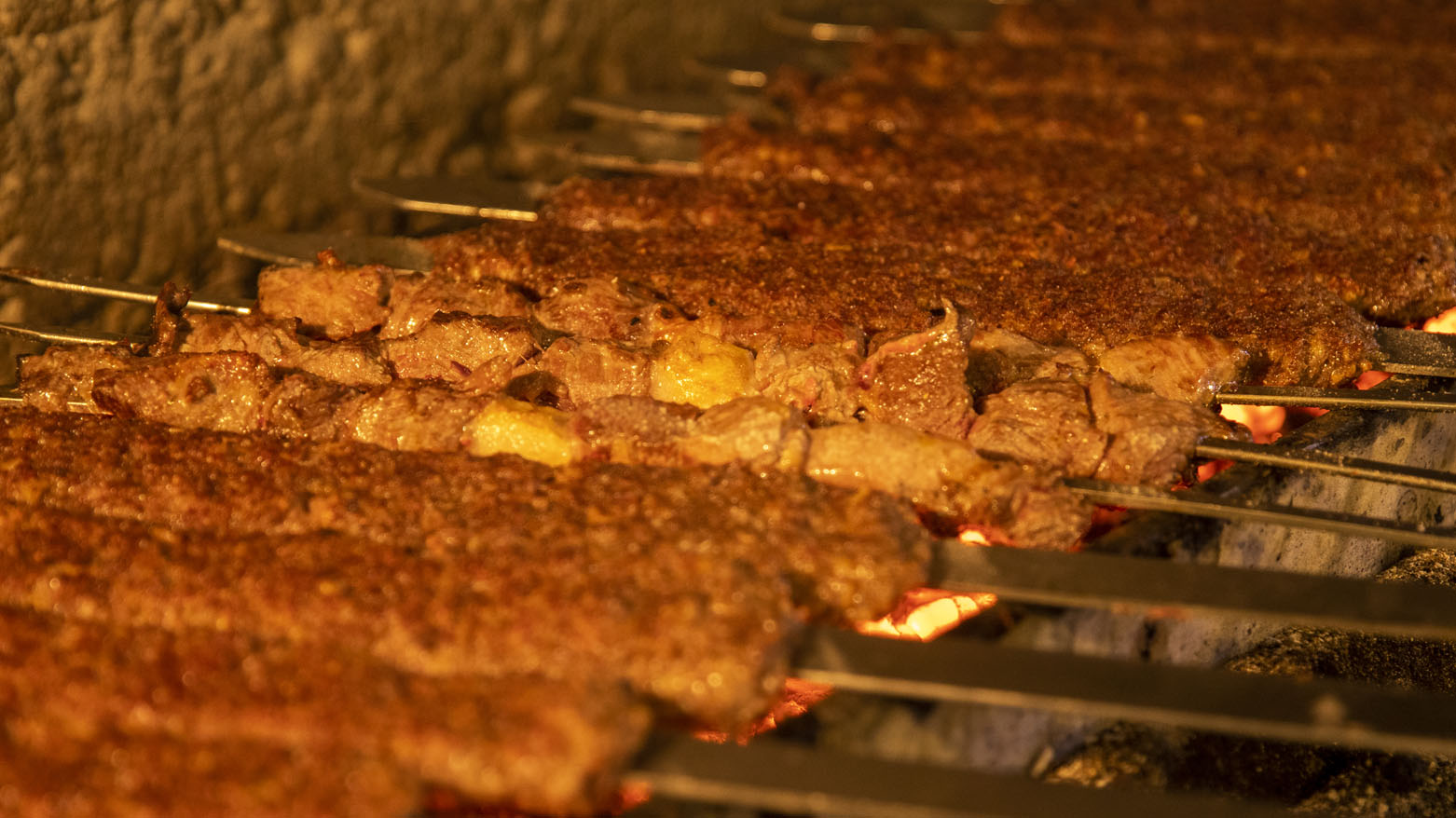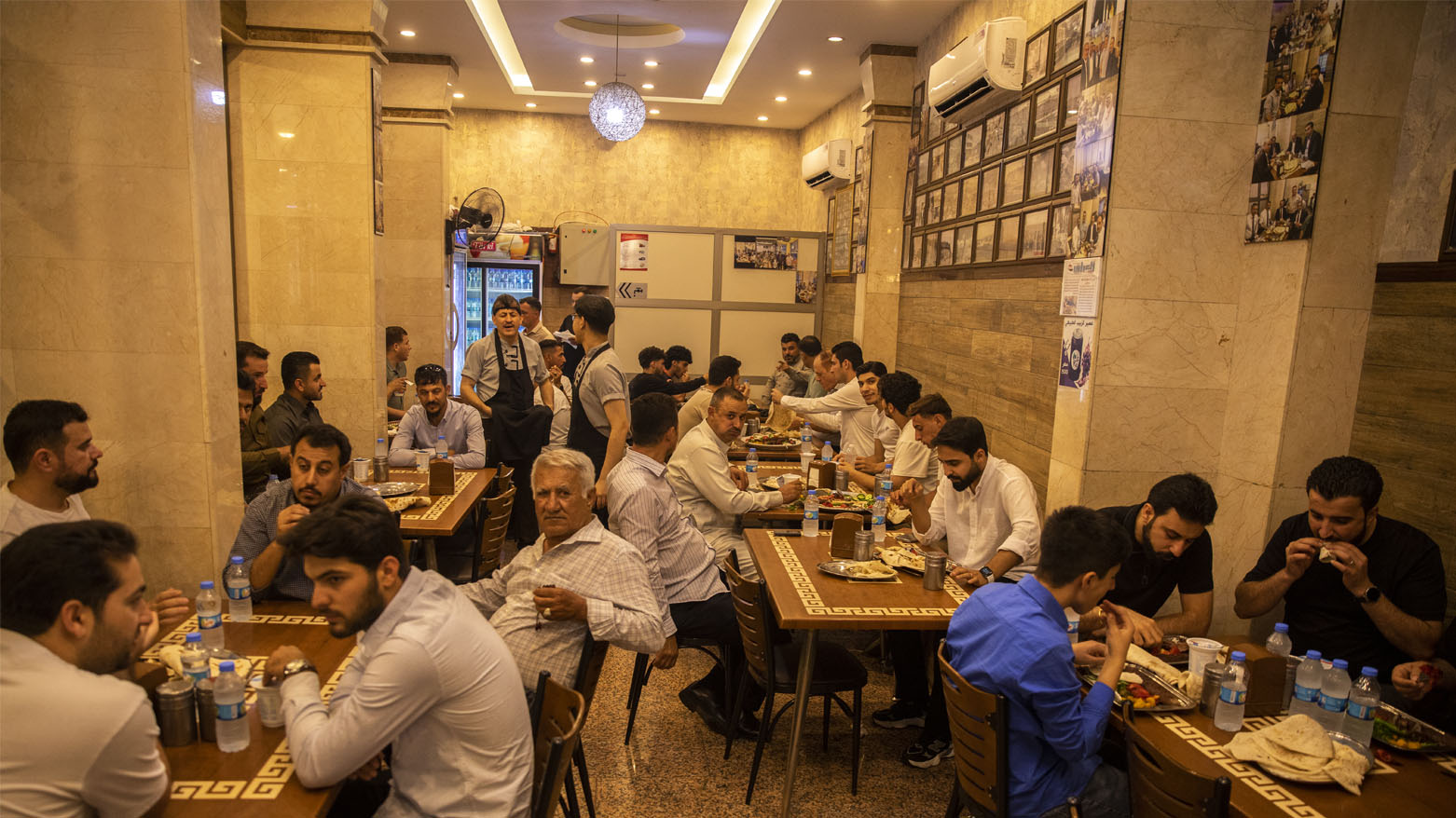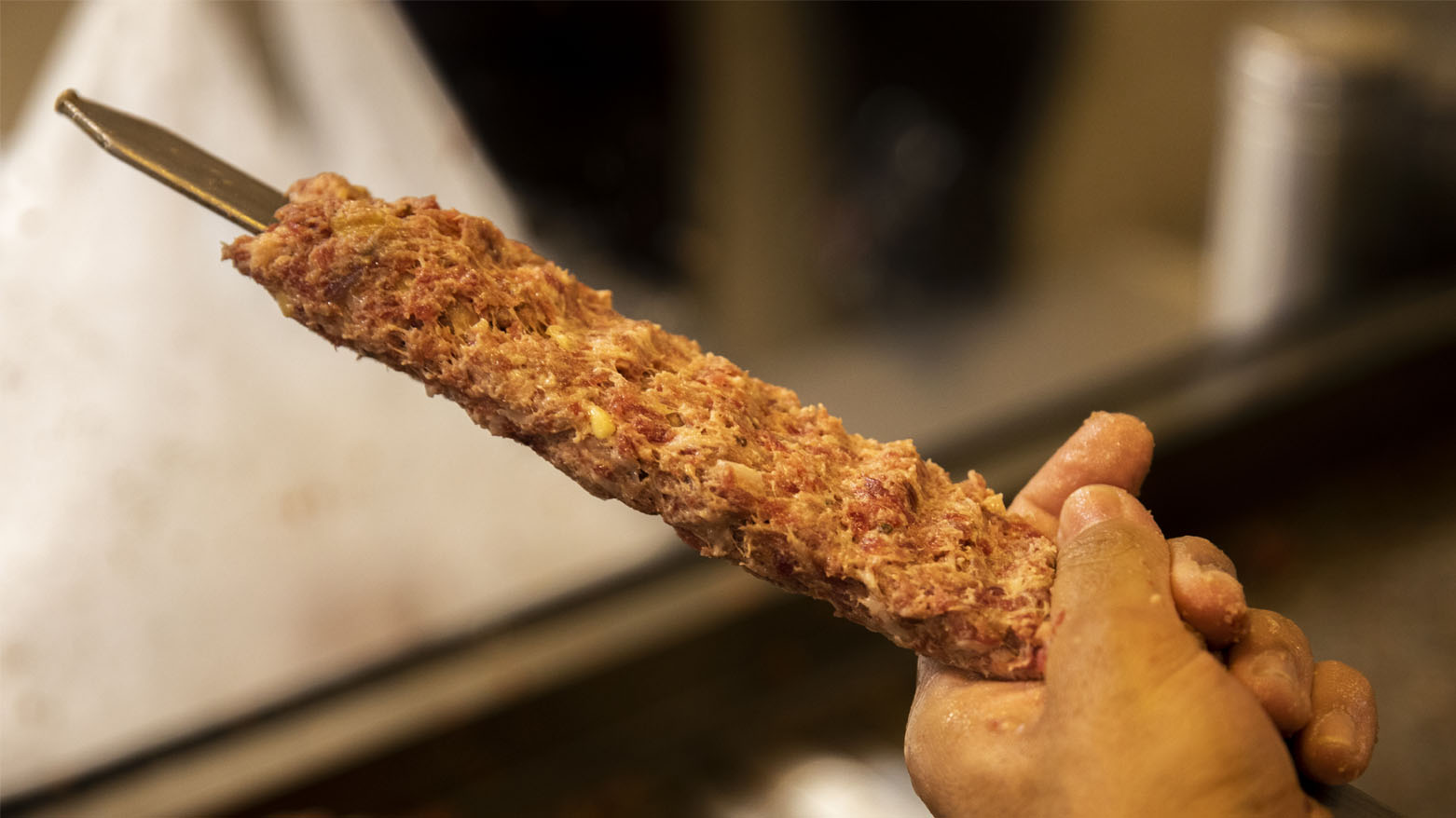Erbil's Centenarian Kebab House: A Taste of Time in the Heart of the Citadel
For 107 years, Yasin’s Kebab House in Erbil’s Qaysari Bazaar has served history on a skewer. Beneath the ancient Citadel, it sizzles on—unchanged, unbeatable, and utterly irresistible. Come for the kebab, stay for a century of flavor-packed nostalgia.

By Kamaran Aziz
ERBIL (Kurdistan24) – In the bustling, labyrinthine heart of Erbil’s ancient Qaysari Bazaar, where the scent of spices and commerce hangs thick in the air, a different aroma has defined the landscape for 107 years: the unmistakable, savory sizzle of grilling meat. This is Yasin's Kebab House, less a restaurant and more a living time capsule, serving not just one of the city's most beloved dishes, but a palpable taste of its history.
For over a century, this institution has been a constant presence, a culinary anchor in a region that has witnessed empires rise and fall.
Its enduring legacy has made it an essential pilgrimage for a diverse stream of daily visitors, from local families upholding tradition to international tourists seeking an authentic piece of Kurdistan’s soul. The demand became so great that a second branch was opened in another part of Erbil, yet the original shop in the bazaar remains its spiritual and historical core.
The secret to its longevity, it seems, is a staunch refusal to change. The establishment proudly adheres to the same traditions and recipes it has used for generations, a consistency that has become its cultural signature.
"It has had four owners, the last being my father, who bought it in the early 1950s," says Wasta (Kurdish word for Master) Hazim Yasin Qarok, a master craftsman who has worked in the shop for nearly half a century. He gestures around the compact space, confirming that its design has been deliberately preserved. The walls tell their own stories, adorned with a mosaic of photographs that serve as a visual guestbook spanning decades. They feature a remarkable collection of diners: prominent political figures, government officials, foreign diplomats, and, most importantly, countless ordinary citizens for whom Yasin's is a cherished memory. To accommodate modern needs without altering the original, a separate seating area for families has been established nearby.
Erbil’s fame for kebab is deeply rooted in the region's social history. As the original text notes, it was once a rite of passage for those traveling from surrounding villages into the city; a trip to the capital was incomplete without stopping for kebab.

More Than a Meal, A Cultural Bastion
To understand the significance of Yasin's Kebab House is to understand its context. Situated directly beneath the 6,000-year-old Erbil Citadel, the Qaysari Bazaar is the city's historic commercial and social nexus. Within this living museum, Yasin's functions as a cherished exhibit—one you can taste. Its survival and unwavering popularity are a testament to the power of cultural continuity.
In a world of rapid globalization and in a region that has navigated profound political and social transformations, institutions like Yasin's are invaluable. They are anchors to a shared past.
The decision not to modernize its interior or alter its time-honored recipe is a conscious act of cultural preservation. It offers a sensory link to the Erbil of a century ago, allowing grandparents and grandchildren to share the exact same experience, flavor, and atmosphere.
The "wall of fame" is more than just decoration; it chronicles the kebab house’s role as a great equalizer, a place where people from all walks of life—from presidents to plumbers—have gathered to break bread. In this, Yasin's embodies a core aspect of Kurdish hospitality and social life. It stands as an island of stability and tradition, proving that in the quest for progress, some of the most valuable things are those we choose not to change. It is, quite simply, history served on a skewer.

Kurdistan24's correspondent Shorsh Harki contributed to this report.
